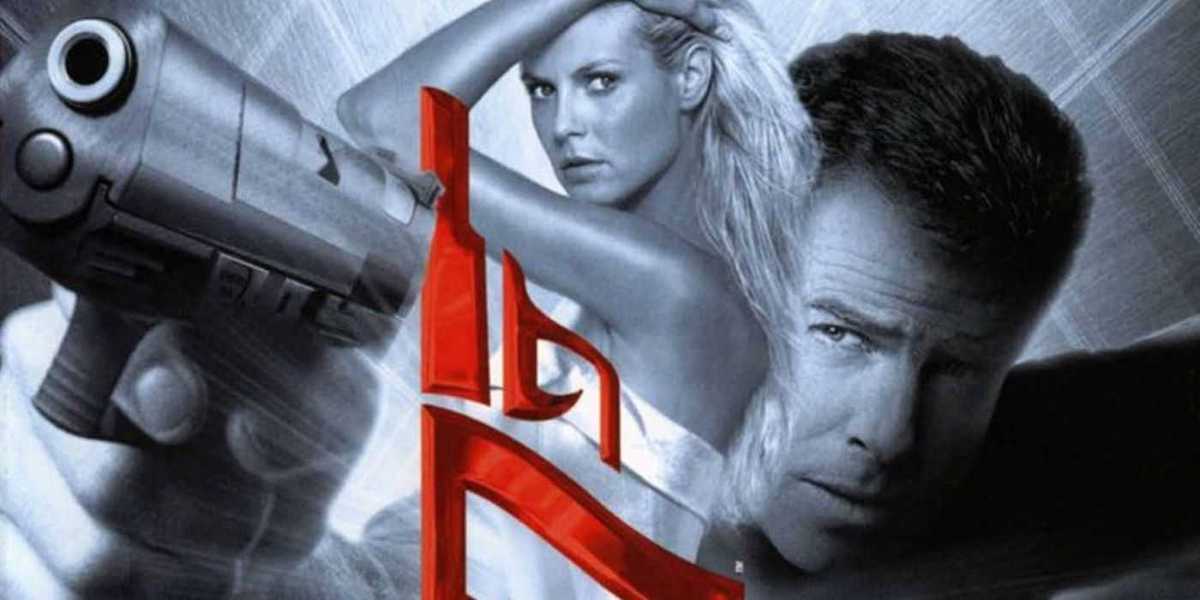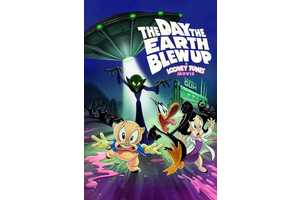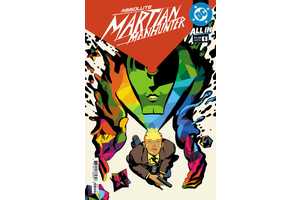The loss of Monolith ends a long history of innovation with its Nemesis System and LithTech engine, and that's a big deal for gaming
The closure of Monolith Productions is a huge loss to the gaming industry. More than 100 people have lost their jobs, many of whom have been working on many titles for decades. Monolith wasn’t always a part of Warner Bros. Games and made many IPs both before and during the time with its parent company. FEAR and Middle-earth:Shadow of Mordor are perhaps its best-known releases, but the studio also created hits like Shogo: Mobile Armor Division, Tron 2.0, and No One Lives Forever.
Monolith Productions was even working for years on a Wonder Woman game revealed in 2022, with much of the game's details never surfacing. Over the last three years, additional information became sporadic. Coinciding with Monolith Productions' closure, the Wonder Woman game is completely canceled with none of the years of work being transferred to another team. It is both immediately shocking but also not surprising that WB would discard so much hard work by passionate employees for a potential tax write-off.
Monolith Was Responsible For Some Great Games - & Game Innovations
The Studio Made Both Engines & Video Games
Monolith Productions had been around for a little over 30 years, starting back in 1994. For the first decade, most of its titles were on PC, with much more of a focus on consoles after it joined WB Games in 2004. Those early days include the first-person shooter series Blood, the humorous strategy game Gruntz, and the mech-themed Shogo: Mobile Armor Division.
What really caught PC users' attention was The Operative: No One Lives Forever in 2000 and its 2002 sequel No One Lives Forever 2: A Spy in HARM’s Way. These stared sharp-witted British spy Cate Archer in the late 1960s fighting against international terrorist organization HARM. Essentially, the games were a middle ground in tone between the more violent James Bond and the over-the-top parody of Austin Powers. It is a shame that both NOLF games are not sold digitally.

Why Everything Or Nothing Was A Better James Bond Game Than GoldenEye
GoldenEye 007 might be a Nintendo 64 classic, but James Bond 007: Everything or Nothing gave Pierce Brosnan the Bond sequel he deserved.
Monolith Productions also made all kinds of innovations in programming over the years. Even in the early days, the studio used its one game engine, LithTech, that strongly incorporated Microsoft’s DirectX, which was much more revolutionary decades ago. The final iteration was LithTech Firebird, which was used in modern titles including Middle-earth: Shadow of Mordor. It helped stabilize large-scale battles that occurred in both Middle-earth titles.
Middle-earth: Shadow of Modor and Middle-earth: Shadow of War are known for their unique Nemesis system. This set of data tracks Uruk enemies and records which ones are the biggest threats. If they survive a battle, they may be promoted with new titles, troops, or skills. It was also heavily rumored that this same set of programming would be used in Wonder Woman. But with the whole team of Monolith Productions now gone, WB Games’ existing patent on the Nemesis system lacks experts, making it near worthless and defunct for the time being.
Monolith's Vision Was A Breath Of Fresh Air
Monolith Productions Was Sharp Both Before & During WB Games
Monolith Productions has had passion and foresight for years, even in the early days of the studio in the 1990s. The silliness of Gruntz was fresh among more serious tactical games. Making an early franchise with a head-strong female protagonist like Cate Archer in No One Lives Forever was bold. By far, though, the Nemesis system was the developer's biggest revolution of all.
By having reoccurring Uruks, it really felt like Sauron’s army was alive and an evolving threat in both Middle-earth titles. No matter the choices Talion made, there would always be ongoing danger and new personal stories as each person played. For myself, I was mostly annoyed when the same quick and dastardly boss kept showing up at the worst time. On gaming forums, others were thrilled to punish and beat up their ongoing rivals, especially when opting to shame them into lower levels, letting them escape from another thrashing.
While WB maintains a stranglehold on the Nemesis system patent, other studios have also made similar attempts using different coding or databases - perfectly legal as long as they don’t copy the exact coding Monolith Productions created. Ubisoft took a crack at it in the well-received Assassin’s Creed Odyssey. In that game, the mercenaries maintain vendettas against Kassandra or Alexios, but will not engage with each other. This contrasts with Middle-earth: Shadow of War, where Uruks could wage war between competing factions. Until WB fully relinquishes the patent, most other studios won’t be as influential as Monolith Productions.
What Happened To Monolith?
It Is Rather Unbelievable Things Went This Far
It becomes very questionable how such a remarkable studio is closed, leaving so many people without jobs or income, and many incredible franchises in limbo. In a statement provided to Kotaku, WB Games spoke on Monolith Productions and the other studios affected:
We have had to make some very difficult decisions to structure our development studios and investments around building the best games possible with our key franchises – Harry Potter, Mortal Kombat, DC and Game of Thrones. After careful consideration, we are closing three of our development studios - Monolith Productions, Player First Games and Warner Bros. Games San Diego. This is a strategic change in direction and not a reflection of these teams or the talent that consists within them.
Essentially, WB Games sees only a few IPs as having a potential future, and are thus worth focusing on. While I do enjoy the mentioned four quite a bit, it comes off as very alarming that they don’t see The Lord of the Rings as a franchise to continue making games for. While its heyday was back in the 2000s with the film trilogy, having something as engaging as Middle-earth is worthy of another game.

"Single Player Games Are Still Relevant & Important": Hogwarts Legacy Fans Petition WB Games
After Warner Bros. announced its commitment to live-service games, Hogwarts Legacy fans petition that a sequel remain focused on single player.
Additionally, WB Games claims that DC is its best franchise, yet it has completely abandoned Wonder Woman. This is very contradictory as she is among the big three of DC heroes alongside Superman and Batman. It might have been more reasonable if Wonder Woman had survived, with some of Monolith Productions’ team being reorganized, but a full cancelation comes off as mismanagement and negligence.
There is no silver lining with the folding of Monolith Productions. So many great IPs like Middle-earth and No One Lives Forever are in danger of never coming back. Most importantly, so many talented people have been let go, many of whom were the only ones that truly knew the tech behind LithTech and the Nemesis system. WB Games' statements are just spinning the facts - the company didn’t really save Mortal Kombat and Harry Potter, as no studio nor IP should have been in danger if the studios and projects had been managed correctly.
Source: Kotaku
- ESRB
- M for Mature: Blood and Gore, Intense Violence
- Developer(s)
- Monolith
- Publisher(s)
- Warner Bros. Interactive
- Engine
- lithtech
- Franchise
- The Lord of the Rings
- Platform(s)
- PS3, PS4, Xbox One, Xbox 360, Linux, macOS










